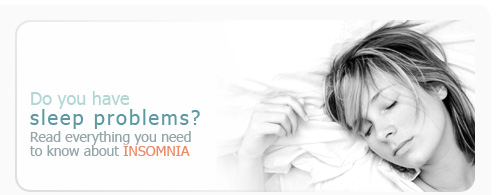Ways To Cure Insomnia
Medical science, oral traditions and alternative therapies offer the possibility to choose from various ways to cure insomnia. Though the first option may point to science, sleeping pills fail to treat the real problems that cause sleeping disorders, and this is why it is so important to use combined solutions and ways to cure insomnia. For instance, before trying any sleeping pills for instance there are lots of tips and home remedies you may use in order to induce a healthy and restful sleep. Keeping a close watch on your life style may lead to a better management of stress and a lowering of the number of sleepless nights.
Almost all ways to cure insomnia converge in the point where they militate for a healthy kind of life; give up late heavy meals, do a lot of physical exercises, spend as much time in open air as possible, and avoid all nervous simulators such as caffeine or energy drinks. These are the more general ways to cure insomnia by actually helping one to stick to very healthy programs and positive behavior patterns. Then, there come the more particular ways to cope with the problem, and they involve some advanced formulas to create sleepiness. Many people turn to yoga techniques and meditation in order to achieve the right relaxation state necessary for quality night rest.
Herbal extracts, aromatherapy, massage, music and self-control techniques are other ways to cure insomnia. Let's take for example music therapy: this involves the use of soft melodic lines that eliminate nervous tension and create a state of well being. Crystal sounds, piano, violin, harp or exotic Asian musical instruments are often used to fight back stress. The only condition is for the success of such ways is that you let yourself carried away by music, putting aside all worries and bothering thoughts from the very mundane existence. After all, sleep should be a detachment from the stressful, intense activities we carry on in the wake state.
Unlike for other health conditions, the ways to cure insomnia are complementary, they do not interfere with each other, and they are free of side effects. Therapists usually recommend the creation of special patterns both at day and at night, since the brain acts better according to set tracks than randomly, particularly where sleep is concerned. For instance, the habit of taking a nap in the afternoon that is so useful for children, may be totally detrimental during the adult life. This is explained by the lower sleep necessity of a grown-up as compared to that of a child.
